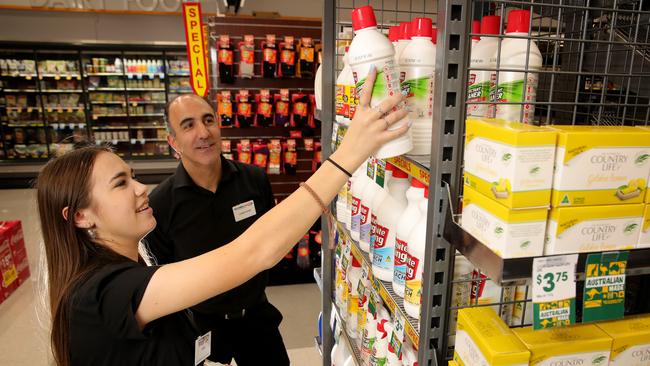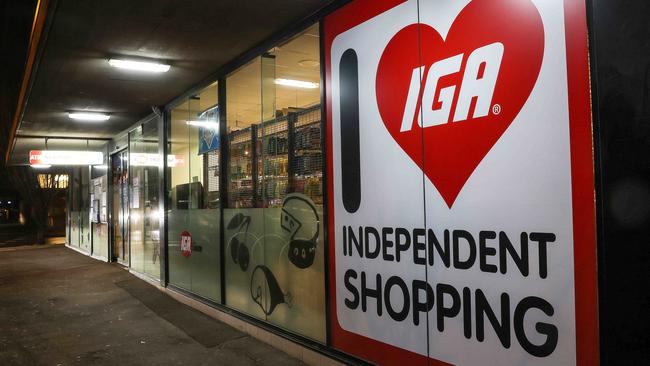The new Metcash supermarket boss confirms inflation and interest rates are biting customers
Shopping baskets are increasingly being filled with private-label and frozen products – a symptom of hard times, says Metcash’s new supermarket boss.

The new boss of Metcash’s supermarkets arm, who oversees as many as 1600 independent supermarkets across the country, has witnessed a shift in consumer behaviour since the start of the year as the weight of 10 consecutive interest rate rises affects spending.
Grant Ramage said there had been a noticeable pick-up in the sale of private label groceries – considered by the sector as a litmus test of consumer confidence – with shopping baskets also filled with cheaper frozen foods.
“We hadn’t seen an awful lot of that (consumers trading down) until early 2023 and then we started to see it.
“It’s not a massive trend at the moment but there is a bit of shift and you can see private label sales increasing, trading across into cheaper products and fresh into frozen … things that have been probably pretty well commented on in the market. It’s not massive yet, but it’s noticeable.”
It’s a theme being picked up in the recent reporting season, with Woolworths and Coles revealing rising sales of private label groceries, and a shift from fresh into frozen and canned goods as shoppers tighten their belts in the wake of soaring inflation.

“Obviously lots of people will be thinking about their budget and being careful,” Mr Ramage said.
“We’ve been building our promotional programs over the last few years and we think we are in the best position ever to offer that value to shoppers.”
Metcash is the third-biggest player in the $100bn supermarket sector, behind Woolworths and Coles, and just ahead of Aldi and Costco, which are snapping at the heels of independent supermarkets that use Metcash as a wholesaler.
Mr Ramage, who comes from near Glasgow in Scotland, has been in Australia since 2004. He worked for Coles’ liquor arm for 10 years before joining supermarkets, liquor and hardware wholesaler Metcash in 2015.
Now he has been put in charge of Metcash’s largest division, its supermarket wholesale pillar, which sells into 1300 IGA supermarkets as well as other chains that take his customer base to about 1600 stores.
The Metcash food and grocery division generated sales of $9.522bn in 2022 and posted a 9.6 per cent lift in earnings to $200.3m, helped partially by the popularity of neighbourhood IGAs and independent supermarkets through the worst months of the pandemic and lockdowns.
Many shoppers used local IGAs for the first time during the pandemic, and liked what they saw, staying as customers when lockdowns ended and larger shopping centres opened again.

Mr Ramage believes Metcash-aligned supermarkets have “fantastic differentiation” in their stores, as well as being more competitive on price.
“We have some of the best supermarkets in Australia, and people are trading across (supermarkets) and changing habits – that might include going out to dinner less and going to the supermarket and buying food.
“We have many stores with great fresh offers and ranges and people will make those choices.”
He said Metcash’s food pillar had begun to return to growth before Covid-19 hit but the lockdowns and travel restrictions helped give a boost to its supermarkets.
“I think it’s important to note that we had gotten back into growth and seeing the business really starting to turn around just before Covid,” he said.
“We started putting a lot of these things in place through 2019 and there’s no question that Covid (helped) bring a lot of people back to IGA.
“And when they came back, they liked it better.
“They saw improved value, good ranges, high-quality stores, well presented. It does come back to being competitive, so getting the value part of the equation right means people can now also enjoy all the other things about having a local business that’s in their neighbourhood, supporting their community and know that they’re paying the right price as well.”




To join the conversation, please log in. Don't have an account? Register
Join the conversation, you are commenting as Logout